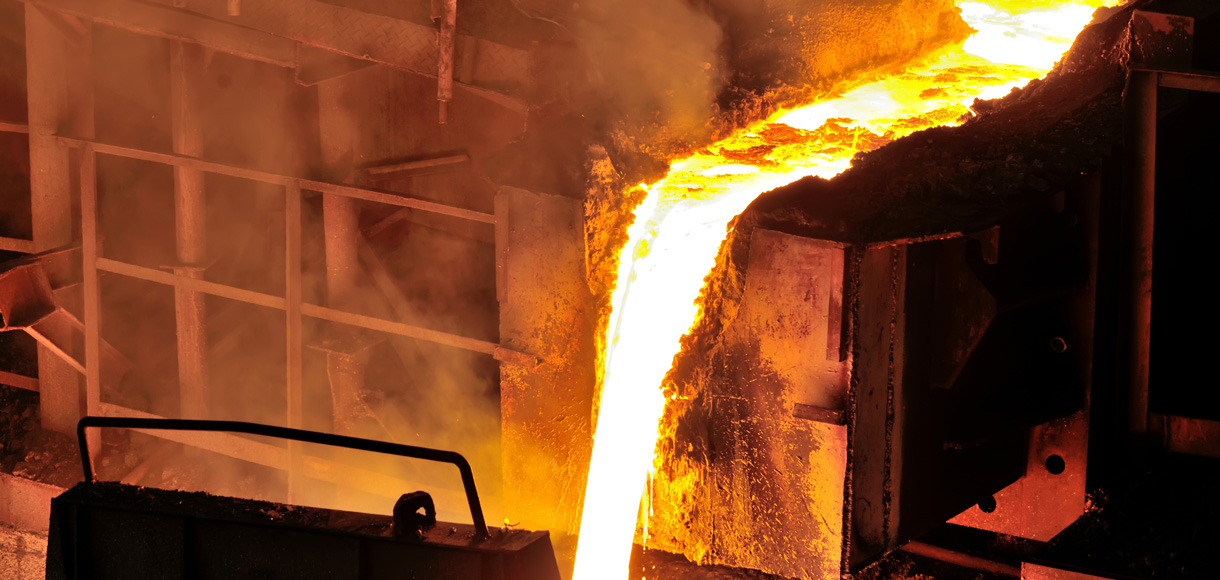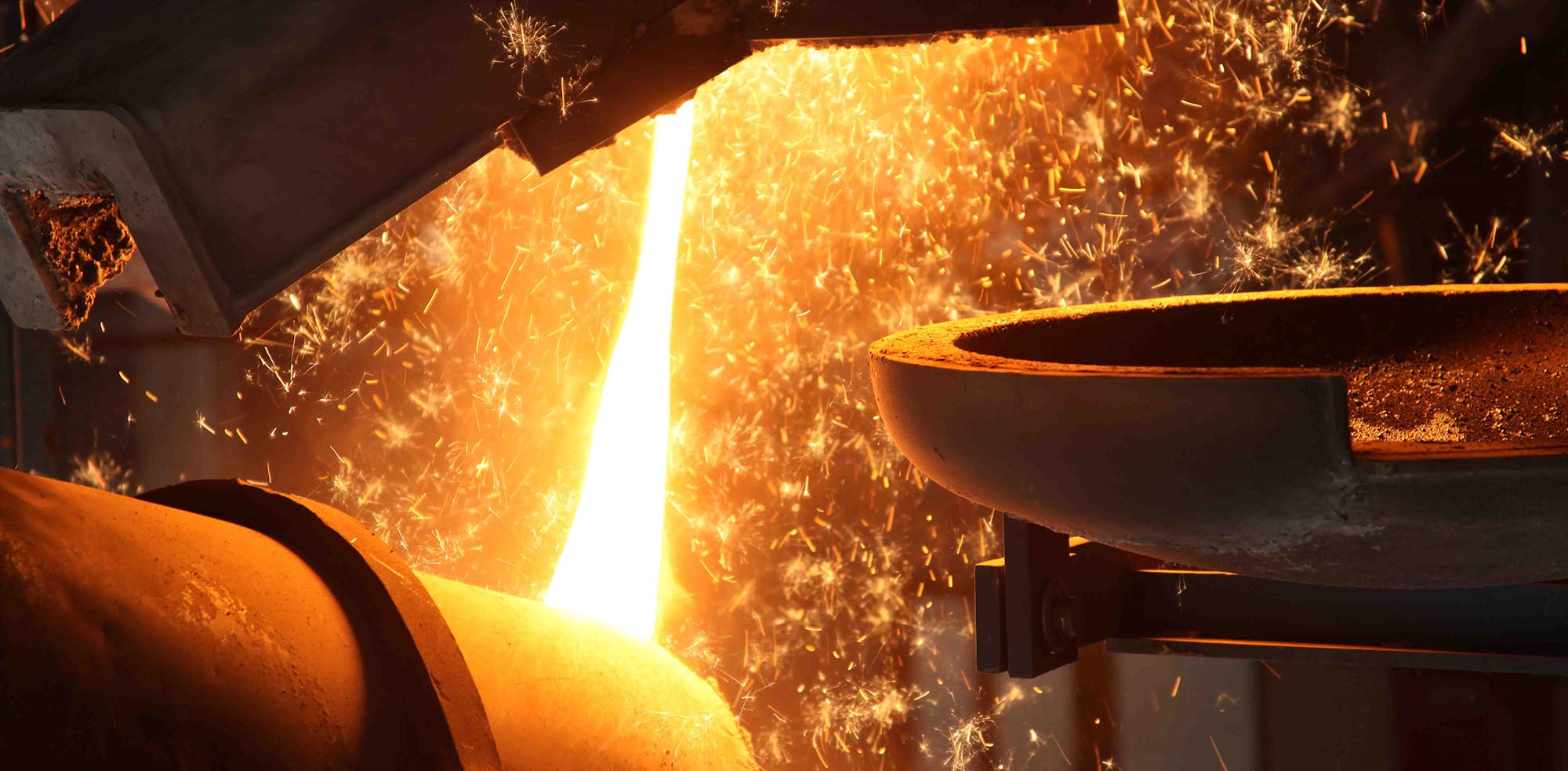How a Metal Foundry drives industrial innovation and innovation
Wiki Article
Discover the Diverse Providers Offered by Steel Shops in Todays Industry
Metal shops play a crucial role in modern-day production by offering a range of solutions tailored to meet commercial demands. They utilize methods like sand spreading and precision machining to develop complex elements. Custom-made alloy development even more improves product performance. However, quality assurance and sustainability are progressively ending up being centerpieces in the sector. Recognizing these diverse services discloses the significant impact foundries carry production performance and ecological responsibility. What else could be influencing their advancement?Steel Casting Techniques: An Overview
Metal casting techniques personify a blend of virtuosity and design, changing molten metal into specific forms and forms. These methods have actually progressed over centuries, adjusting to technical advancements and the diverse requirements of various markets. Amongst the most usual techniques are sand casting, which makes use of sand mold and mildews; investment spreading, understood for its elaborate designs; and pass away spreading, which utilizes high pressure for rapid production.
Each method uses unique advantages, such as cost performance, precision, and the ability to function with various metal kinds. Sand casting is specifically preferred for its convenience and ease of usage, whereas financial investment casting masters producing comprehensive elements. Pass away casting, on the other hand, is excellent for high-volume production, making sure uniformity and rapid turn-around. Collectively, these techniques play a crucial role in developing elements for automotive, aerospace, and machinery fields, showcasing the detailed partnership between design and functionality in metalworking.

Accuracy Machining Services
Precision machining solutions deliver high precision and consistency in the construction of complex components throughout various industries - Aluminum Foundry. These services are essential for creating parts that require elaborate styles and limited resistances, guaranteeing that they meet stringent high quality standards. Advanced machining methods, including CNC milling, transforming, and grinding, allow steel shops to develop parts with outstanding detail and surfaceMaking use of modern machinery, precision machining can take care of a wide array of materials, consisting of plastics, composites, and metals. This versatility enables markets such as aerospace, automotive, and clinical to take advantage of customized remedies that boost product performance and reliability.

Customized Alloy Development
Custom alloy advancement plays a necessary duty in satisfying the specific needs of numerous commercial applications. Metal shops participate in producing tailored alloys that provide to distinctive performance criteria, such as stamina, corrosion resistance, and thermal conductivity. By using innovative metallurgical strategies and simulations, these factories can formulate alloys that improve the overall functionality of products throughout varied fields, consisting of aerospace, automotive, and electronics.Partnership in between factories and customers is substantial in this procedure. Metallurgists and designers interact to recognize desired residential or commercial properties, enabling precise modifications in make-up and handling approaches. This bespoke strategy not only enhances material performance however also adds to set you back performance by reducing waste and maximizing source usage.
In the affordable landscape of modern manufacturing, custom-made alloy advancement is an essential solution that encourages services to introduce and preserve an one-upmanship while attending to specific operational obstacles successfully.
Quality Control and Testing Procedures
Ensuring the highest criteria of high quality control and screening treatments is important for metal foundries to supply dependable products. These treatments usually include a series of approaches developed to analyze the integrity and efficiency of metal spreadings. Shops use different testing techniques, including aesthetic assessments, mechanical residential or commercial property analyses, and non-destructive testing techniques such as radiographic and ultrasonic evaluations.Material structure is carefully assessed utilizing spectrometric techniques to verify adherence to defined alloy standards. In addition, thermal evaluation might be conducted to keep an eye on solidification patterns and anticipate mechanical residential properties.
Documents of each testing phase is crucial, as it supplies traceability and guarantee that the items fulfill industry guidelines and client expectations. By carrying out rigorous quality assurance processes, steel shops not only enhance item integrity however likewise foster trust fund with clients, preserving an one-upmanship in the industry.
Sustainability Practices in Metal Foundries
As markets significantly focus on environmental duty, steel factories are taking on sustainability techniques that lessen their environmental impact. Lots of foundries are implementing closed-loop systems to reuse products, lowering waste and saving resources. This approach not only reduces the need for basic materials however likewise reduces energy usage throughout manufacturing.Some foundries are investing in energy-efficient innovations, such as electrical heaters and advanced cooling systems, which significantly lower greenhouse gas exhausts. The usage of eco-friendly spreading materials and ingredients better boosts sustainability by reducing unsafe ecological influences.
Water preservation is another vital focus, with factories employing recirculation systems to limit water usage. On top of that, waste management methods, including the recycling of sand and steel scrap, are becoming common technique. By incorporating these sustainability steps, metal shops are placing themselves as responsible players in the production sector, aligning with global efforts to promote an extra sustainable industrial landscape.
Frequently Asked Inquiries
What Industries Commonly Use Steel Foundry Providers?
Different markets make use of metal factory solutions, including vehicle, aerospace, energy, and building sectors. These sectors count on shops for tailored metal elements, casting services, and high-grade products important for their production procedures and product advancement.Just How Can I Choose the Right Shop for My Project?
To select the appropriate shop, one need to assess variables such as field of expertise, reputation, modern technology, top quality assurance processes, delivery timelines, and client service. Carrying out comprehensive study and looking for recommendations can better assist the decision-making process.What Is the Typical Lead Time for Casting Orders?
The average lead time for casting orders generally ranges from four to twelve weeks. Variables affecting this timeline include order complexity, factory ability, and material schedule, which can vary significantly amongst different foundries.
Are Steel Shops Qualified of Making Small Set Runs?

What Precaution Are Implemented in Metal Shops?
Steel factories apply different precaution, consisting of personal protective tools, air flow systems, regular Aluminum Foundry training, emergency action procedures, and rigorous adherence to security regulations to reduce risks related to molten steel handling and workplace crashes.Steel factories play an important duty in contemporary production by using a selection of solutions customized to meet commercial demands. Metal shops involve in producing tailored alloys that cater to unique performance standards, such as stamina, corrosion resistance, and thermal conductivity. Guaranteeing the highest requirements of quality control and screening procedures is necessary for metal shops to supply reliable items. As industries increasingly prioritize ecological duty, metal foundries are embracing sustainability methods that reduce their ecological footprint. Different industries use metal foundry solutions, consisting of automobile, energy, aerospace, and building markets.
Report this wiki page